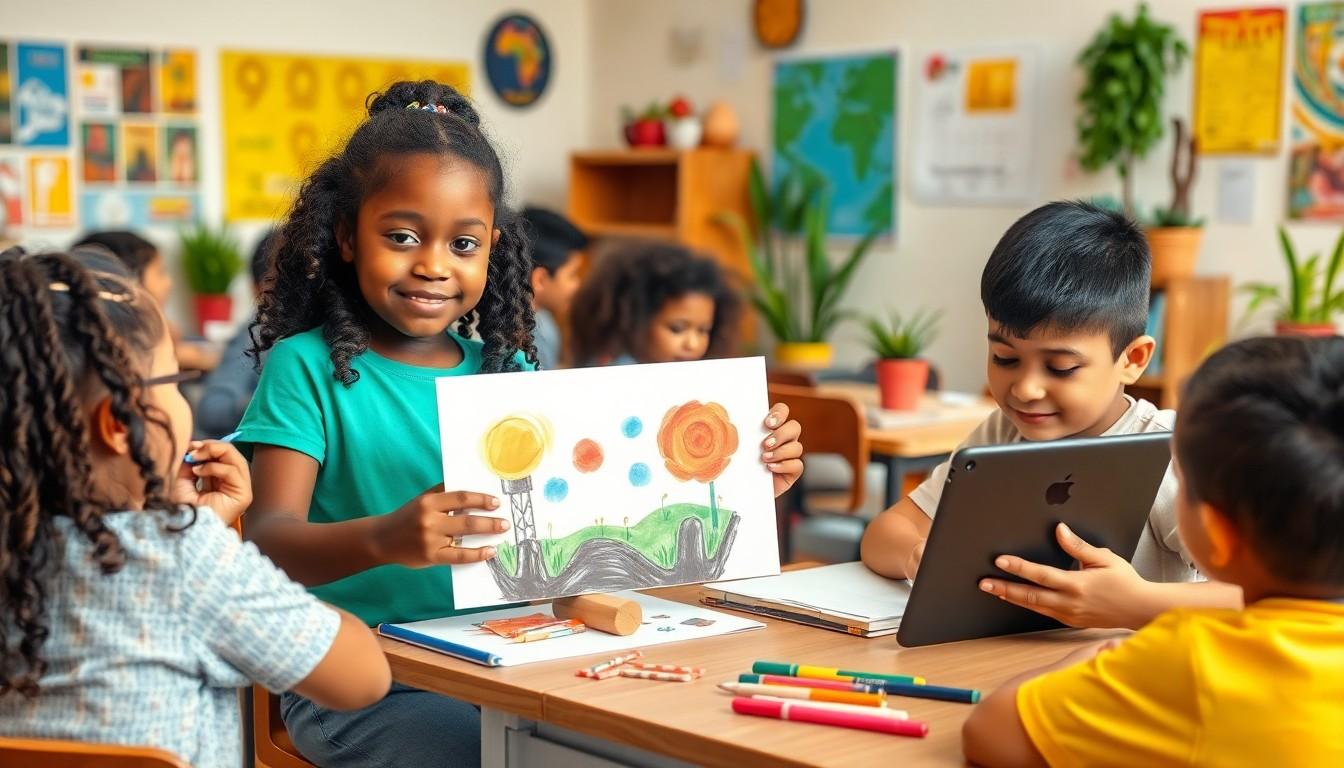Table of Contents
ToggleIn a world where traditional classrooms often feel like a scene from a sitcom gone wrong, non-traditional schools are shaking things up. Imagine a place where learning doesn’t just happen at a desk but in gardens, studios, and even online. These schools cater to unique learning styles, making education feel less like a chore and more like an adventure.
If you’re tired of the same old routine and want your child to thrive in a more dynamic environment, non-traditional schools near you might just be the answer. From Montessori methods to project-based learning, these options embrace creativity and individuality, proving that education can be both fun and effective. So why settle for ordinary when extraordinary is just around the corner?
Understanding Non Traditional Schools
Non-traditional schools offer innovative educational experiences beyond standard classroom settings. They focus on engaging learning approaches, making education enjoyable and effective.
Definition and Characteristics
Non-traditional schools diverge from conventional structures. These institutions prioritize personalized learning, utilizing diverse environments such as gardens and studios. Characteristics often include smaller class sizes, individualized curricula, and flexible scheduling. They embrace various teaching methods like experiential learning and hands-on activities. Non-traditional schools cater to different learning styles, fostering creativity and critical thinking.
Types of Non Traditional Schools
Numerous types of non-traditional schools exist. Montessori schools emphasize self-directed learning, allowing students to explore at their own pace. Waldorf schools focus on artistic and movement-based education, integrating academics with creativity. Charter schools typically operate independently from the traditional school system, featuring unique educational philosophies. Online schools provide flexible learning options, utilizing technology to reach students remotely. Other types include Reggio Emilia, democratic schools, and unschooling, each offering distinct approaches to education.
Benefits of Non Traditional Schools
Non-traditional schools provide unique advantages that enhance the educational experience for students. These institutions foster individual growth and flexibility.
Personalized Learning Approaches
Personalized learning approaches cater to each student’s unique strengths and needs. Non-traditional schools often implement individualized curricula that allow learners to progress at their own pace. Students engage in projects that match their interests, promoting deeper understanding and retention. Smaller class sizes enable teachers to offer tailored support, addressing specific challenges. By focusing on learners’ preferences, these schools cultivate a sense of ownership in education.
Flexible Scheduling Options
Flexible scheduling options in non-traditional schools accommodate diverse lifestyles and commitments. Students can choose learning times that fit their personal rhythms, optimizing productivity. Programs often incorporate year-round options, reducing the long summer breaks common in traditional settings. This model supports part-time work or extracurricular involvement, contributing to well-rounded development. Flexibility also encourages families to take advantage of travel or unique learning experiences, enriching education beyond the classroom.
Finding Non Traditional Schools Near Me
Exploring non-traditional schools involves thorough research and active engagement with local options.
Researching Local Options
Utilize online tools such as search engines and educational websites to find non-traditional schools within proximity. Check local directories, which specifically list educational institutions by type. Focus on reviews and ratings from parents to gauge satisfaction and outcomes. Explore social media platforms, where community groups often share recommendations and experiences. Consider asking educators for insights regarding alternatives that may not be prominently advertised.
Visiting Schools and Open Houses
Schedule visits to potential schools to gain firsthand information. Engage with administrators and teachers during open houses to learn about their philosophies and curricula. Observe the environment; classrooms and outdoor spaces can reveal insights about the learning atmosphere. Interact with students, noting their enthusiasm and engagement in various activities. Collect printed material detailing programs, admission processes, and potential financial aid options. Make informed decisions by reviewing all gathered information and weighing how well each school aligns with individual educational goals.
Factors to Consider
When evaluating non-traditional schools, specific factors play a crucial role in ensuring a good fit for students.
Curriculum and Accreditation
Curriculums offered by non-traditional schools vary widely. Montessori programs emphasize child-led exploration, while Waldorf schools focus on a balance between academics and the arts. Project-based learning promotes hands-on experiences that link educational concepts to real-world applications. Accreditation represents another important aspect; recognized accreditation ensures high educational standards and quality. Researching a school’s curriculum and its accreditation status provides insights into educational quality. Parents should also consider how each curriculum aligns with their child’s interests and learning styles.
Class Sizes and Teacher-to-Student Ratios
Class sizes often differ significantly in non-traditional schools, influencing the overall learning experience. Smaller class sizes typically allow for more individualized attention, fostering deeper connections between students and teachers. Teacher-to-student ratios also vary; schools with lower ratios often provide tailored support to enhance learning. Maintaining effective communication between educators and students creates a supportive environment conducive to academic success. Engaging directly with school administrators can clarify class sizes and ratios, helping parents make informed decisions that align with their educational goals.
Conclusion
Exploring non-traditional schools can open doors to innovative educational experiences that cater to individual learning styles. These schools provide a refreshing alternative to conventional education by fostering creativity and critical thinking through personalized approaches.
Parents looking for a more engaging and flexible learning environment will find various options that align with their children’s unique needs. By actively researching and visiting local non-traditional schools, families can discover the right fit that promotes both academic success and personal growth. Embracing these educational alternatives could lead to a fulfilling journey for students and parents alike.





